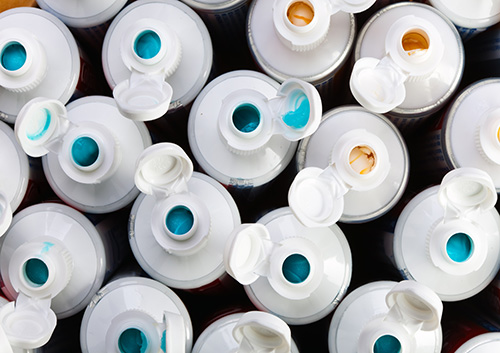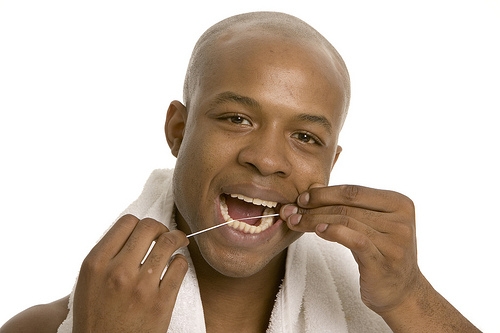The Science of Sugar
June 20th, 2024

Some languages have many different words for love. Some have many different words for snow. One language even has different words for a tasty layered sandwich. Is that a hoagie or a hero you’re having? A sub? Grinder? Po’boy?
“Sugar,” though, is a single word which has taken on many meanings, from casual endearment to monosaccharide molecule. Today, we’re examining scientific definitions, with a short and sweet look at the science of sugar.
Chemistry
First, let’s get basic—all the way down to the molecular level.
Carbohydrates, fats, and proteins are the three essential macronutrients which keep our bodies running. Sugars are molecules made of carbon, hydrogen, and oxygen atoms, and all carbohydrates are made of these sugar molecules, from single unit structures to very complicated chains.
Sugars called monosaccharides are the most basic of the carbohydrates. “Monosaccharide” comes from the Greek words for “single” and “sugar,” and monosaccharides are the sugars we mean when we talk about “simple sugars.” Why are they simple? Because a monosaccharide is a single molecule which can’t be broken down into smaller carbohydrates.
While there are several types of monosaccharides, the three major simple sugars are:
- Fructose—the sugar we get from fruit.
- Galactose—the sugar found in milk.
- Glucose—the sugar our bodies use the most. It’s found in plants, and also produced when our bodies break down other carbs. Fun fact—this is the only sugar essential for brain cell function.
When two monosaccharide molecules join together, they form a disaccharide (not surprisingly, from the Greek for “two sugars”). Again, there are quite a few disaccharides, but we tend to concentrate on three in our diets:
- Lactose (glucose + galactose)—found only in milk and dairy products.
- Maltose (glucose + glucose)—the sugar chiefly produced by grains.
- Sucrose (glucose + fructose)—produced in plants. These plants include sugar cane and sugar beets, from which we get our refined table sugars.
The reason sugar molecules are so important is because of how our bodies use them.
Biology
Our bodies use the glucose in carbs for energy. As foods break down, first through digestion and then in the cells, the chemical bonds which hold glucose molecules together break as well. This action releases energy, and this energy fuels all our bodily functions.
But even though we need carbohydrates to keep our bodies going, and even though sugars are the easiest carbs to use for energy, there’s a reason no one recommends a diet filled with extra sugar.
Our bodies get all the sugar they need from the natural sugar in the foods we eat. Natural sugars are found in fruits, dairy products, even some vegetables and grains. Along with that sugar come vitamins, minerals, antioxidants, fiber, and/or protein.
Extra sugars added during baking or mixing or processing for flavor and sweetness provide none of these nutrients. These sugars are known as “added sugars,” and have more serious consequences than just empty calories.
Once we have the sugars we require, there’s no need for more. Extra sugars are stored in liver, muscle, and fat cells for later use. When we eat too much sugar, this carefully balanced system is upset, with negative effects for, among other things, weight, blood sugar, insulin levels—and our dental health.
Nutrition and Dental Health
You know that a sugar-filled diet often means a cavity-filled checkup. Why? Because it’s not just our bodies that break down sugar for fuel.
The oral bacteria in plaque also need sugars for food, which they use to make acids. An acidic environment in the mouth weakens and dissolves the minerals which keep tooth enamel strong. And these weak spots are vulnerable to decay. A steady diet of sugar-filled foods means that your enamel is constantly under acid attack.
Cutting down on added sugars is one of the easiest and best ways to cut down on added cavities. Reading recipes, checking out labels, learning to recognize added sugars—this is nutritional research which has sweet results.
How to recognize added sugars? Here’s where language gives us plenty of words to fill our linguistic sugar bowl. Whether the ingredients are called agave nectar, honey, molasses, syrups, treacle, or table sugar, they’re really just sugar. More specifically, they’re all sugars made up of glucose and fructose, with at best a trace amount of vitamins and minerals—and usually not even a trace!
To make our lives easier, labels on food packaging now let us know exactly how much of the sugar in any product is “added sugar.” You expect to find a high percentage of sugar on dessert labels, but you might be surprised to read how much sugar is added to foods like energy drinks, sports drinks, flavored yogurts, cereals, spaghetti sauce, and many more of the items in your grocery cart. Spend an extra minute examining the label, and save yourself many empty calories.
Monosaccharides, disaccharides, glucose, fructose, maltose, agave syrup, treacle, and on and on—so many words for so many kinds of sugar. When it comes to dental health, let Dr. Timm have the last word on sugar science. During your next visit to our Michigan Center, MI office, talk to us about reducing unnecessary sugars in your diet for a future filled with the sweetest of healthy smiles.



